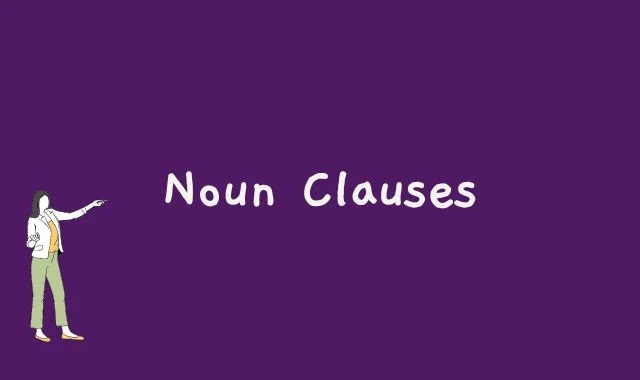Noun Clauses
Introduction
Have you ever wondered how to add complexity and depth to your sentences, making them more compelling? The answer lies in mastering noun clauses. These versatile grammatical structures can function just like a single noun, bringing richness and clarity to your writing. Whether you're a student eager to elevate your grammar skills or a teacher seeking to make your lessons more engaging, understanding noun clauses is essential. In this article, "Noun Clauses," we'll dive into how these clauses operate, complete with practical examples and tips. Let's uncover the power of noun clauses and transform your writing from basic to brilliant!
Noun Clauses
What is a noun clause?
A noun clause is a subordinate clause that is used as a noun. A noun clause can function in any way that a single noun can function.
- Whoever leaves last should turn off the lights. [The noun clause is the subject of the verb phrase should turn.]
- My hope is that the bees will not sting him. [The noun clause is the predicate nominative, following the verb is.]
- Does someone know where we pick up the tickets? [The noun clause is the direct object of the verb Does know.]
- Give whoever is thirsty a bottle of cold water. [The noun clause is the indirect object of the verb give (bottle is the direct object).]
- Please hand a blank form to whoever does not have one. [The noun clause is the object of the preposition to.]
NOTE
Noun clauses are usually introduced by a word such as
how,
that,
what,
when,
which,
who,
whom,
or
whose.
that,
what,
when,
which,
who,
whom,
or
whose.
The introductory word often has a function within the noun clause, such as serving as the subject, direct object, or predicate nominative.
When who/whom and whoever/whomever are part of a noun clause, their function in that clause determines which form to use, not the word that comes before the pronoun.
EXAMPLE
- Concert seating is free to whoever wants to attend. [In the noun clause, whoever is the subject of the verb wants. The entire noun clause is the object of the preposition to.]
<->
TIP
Adjective clauses and noun clauses can both begin with
that,
which,
who,
whom,
or
whose.
which,
who,
whom,
or
whose.
Remember that an adjective clause describes a noun or a pronoun, while a noun clause performs the function of a noun in the sentence.
Noun Clauses Quiz
Choose S if the noun clause is used as a subject, PN if it is used as a predicate nominative, DO if it is used as a direct object, IO if it is used as an indirect object, or OP if it is used as the object of a preposition.
Conclusion
Mastering noun clauses can significantly enhance your grammar and writing skills. By understanding how these clauses function, you can add complexity and nuance to your sentences. Keep practicing with the provided examples and revisit this guide whenever you need a refresher. Remember, consistent practice and application are the keys to mastering grammar. Happy writing, and may your sentences always be enriched with the clarity and depth that noun clauses provide!



